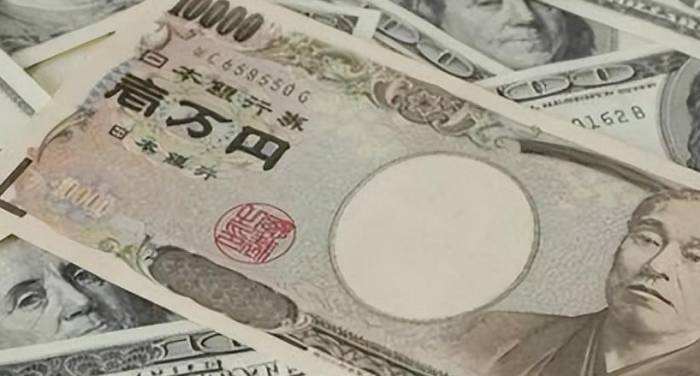Traders are waiting for the U.S. PCE data later on Friday, with bets on the yen's depreciation increasing.
Tokyo's CPI data for June, released on Friday, has rebounded, which may enable the Bank of Japan to discuss interest rate hikes at the July meeting.
However, the yen's depreciation has not eased as the U.S. dollar remains strong ahead of the U.S. PCE data release.
The U.S. dollar rose to the 161 level against the yen on Friday, the first time since 1986, reaching a high of 161.28, and has since retreated somewhat, but concerns among investors about Japan's intervention in the foreign exchange market are intensifying.
Meanwhile, the Japanese stock market is performing actively.
The Tokyo Stock Exchange Index touched its highest level since 1990 during the session, supported by listed companies' efforts to improve shareholder returns and financial stocks benefiting from higher interest rates.
Ryoutarou Sawada, a senior analyst at the Toukai Tokyo Research Institute, said that the index could set a new record within a week.
Interest rate changes could support financial stocks, and if more measures could be taken to reduce cross-shareholdings, thereby increasing return rates, "it would be enough to push up stock prices."
Advertisement
Since bottoming out in mid-April, bank stocks have made a significant contribution to the rebound of the index, as the market expects rising interest rates to improve banks' profitability.
Overall, major companies have also increased dividends and announced stock buybacks at a record pace.
Masahiro Ichikawa, Chief Market Strategist at Sumitomo Mitsui DS Asset Management, said: "Large value stocks have performed relatively strongly over the past three months.
Expectations for Japanese companies to manage their businesses with a focus on cost remain high."
The depreciation of the yen has also helped exporters, although recent exchange rate levels have raised concerns about the negative impact on import costs and consumer confidence, and increased the possibility of official intervention to support the yen.
Japan's inflation expectations have risen to the highest level since at least 2004, adding to the reasons for the Bank of Japan to raise interest rates.
As the U.S. dollar puts pressure on the yen, the Federal Reserve's preferred inflation indicator is about to be released, and traders are weighing the first debate of the U.S. presidential election.
If the U.S. core PCE indicator for May is stronger than market expectations, the yen may fall further.
Implied volatility spreads indicate that investors are demanding a premium to guard against sudden volatility, with bets on the yen's depreciation increasing, and an indicator measuring the positions of active traders falling to the lowest level since 2022.
Even if Japan intervenes in the market as it did in April and May, its long-term impact may be limited.
Ray Attrill, a strategist at National Australia Bank Ltd., wrote in a research report this week: "Intervention can only temporarily alleviate the yen's weakness unless we see a change in fundamentals."
The top Japanese currency official, Makoto Kanda, said this week that the authorities are ready to intervene in the foreign exchange market 24 hours a day if necessary.
Finance Minister Shunichi Suzuki said on Friday that he is deeply concerned about the impact of rapid, one-sided exchange rate fluctuations on the economy, and the government is closely monitoring market developments with a high sense of urgency.
Suzuki also announced personnel changes in the main positions of the department, including the appointment of Jun Mifune as Kanda's successor, which will take effect on July 31.

This personnel change will not affect the country's overall monetary policy.
Hiroyuki Machida, head of FX and commodity sales at ANZ Bank Japan, said that the rise of the U.S. dollar to 161 against the yen reflects strong demand for the dollar among investors at the Tokyo fixing at the end of the quarter.
Japan has invested a record 9.8 trillion yen ($61 billion) in the latest round of intervention, which occurred on April 29 and May 1.
Some traders believe that the U.S. dollar could rise to 170 against the yen, and there is no immediate catalyst to reverse its momentum in a sustainable way.
So far this year, the yen has depreciated by about 12%, making it the worst-performing currency among the Group of 10 currencies.
The speed of exchange rate changes is also important to Japanese officials.
Kanda once said that a 10-yen fluctuation in the yen exchange rate within a month is very fast, and a 4% fluctuation within two weeks does not reflect the fundamentals.